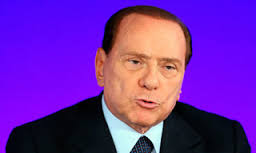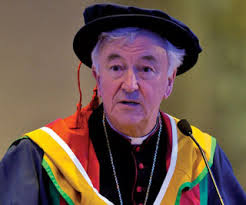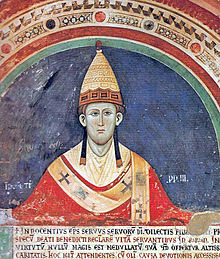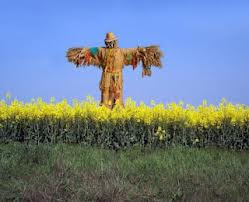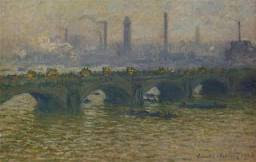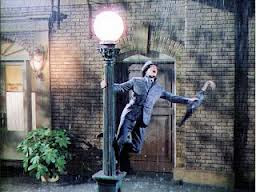A longer and funnier version of the lecture appears here.
Catherine Popehater, Editor of the Tabloid comic (motto Ecclesia Contra Papam), was very pleased that Kaiser Wilhelm II agreed to give the 2012 Tabloid lecture. Last year, by mistake, we invited Vincent Nichols, who said that, on balance, he thought that poisoning the Pope was not the only possible answer to the problems facing the Catholic Church. This year, we have managed to find someone less conservative.

Robert Blair Kaiser.
These days, both wings of the Church are saying that the Second Vatican Council was a failure. I do not believe that this is true. For one thing, it allowed an obscure talentless journalist such as myself to make a career out of the Catholic Church's problems, just because I am a fluent Latin speaker.
I remember meeting Pope John XXIII just before the Council opened. "Hic, haec hoc!" I said to him, challengingly, and followed this up with "Mensa, mensa, mensam, mensae, mensae, mensa!" The Pope looked at me in a puzzled way, crossed himself, and moved on: it was at that moment that I knew I had influenced the Church in a way that would go down in history.

John XXIII - he had no answer to my arguments.
His predecessors, Pius XI and Pius XII, had campaigned against Evil. As an historian,
Papa Roncalli knew what a risky business this could be. "No more moralizing," he said. I am sure he didn't want the Council to take sides in the so-called battle between God and the Devil.
As the Council opened, I sought out America's most famous Catholic preacher, Bishop Fulton Sheen. I expected him to be sleeping in a cardboard box under a railway bridge, but when I saw that he was staying in a hotel, I instantly knew that he was a reactionary.
"This Council will be inspired by the Holy Spirit," he said.
"Never heard of Him," I retorted. "Can you tell me how to interview Him?"
Bishop Sheen merely smiled sadly, and I knew that we would be in danger, if the Holy Spirit - an unelected grandee - tried to interfere in the Council's decisions.

Fulton Sheen - did he wear gloves to avoid leaving fingerprints?
Well, you expect to see dinosaurs like Sheen when bishops are appointed by the
Vatican hierarchy, instead of being democratically elected like police chiefs, in
a free ballot in which atheists may also participate!
In the end, unlike the previous twenty Councils, in which some mythical person called "God" had played a key role, Vatican II was inspired directly by the 1960s ethos.
The inspirational figures of the 1960s - people like Ronald Biggs, Jimmy Savile and Christine Keeler - were all to be found outside the Church oligarchy.

Christine Keeler, in prayer.
The Council changed the way we thought about God and the World. Indeed, Pope John and his Council made preliminary moves that helped end the Cold War - and, only 25 years later, Communism collapsed. (I make this comment since I am not pretending that the effects of the Council were always beneficial.)

Marxists reflect on the threat posed by the Council.
Before the Council, Mass had to be celebrated by a priest. Afterwards, nobody went to Mass anyway, so it didn't matter.
Before the Council, women were forbidden to attend Mass. Afterwards, they were freed from their bonds and allowed to
participate fully in the life of the Church.
The shock of this liberation drove some women insane with joy, and special
caring arrangements had to be made: for example,
Patient C was appointed editor of a Catholic comic,
while Patient T was
sent to sheltered accommodation in Roehampton.

Roehampton - a place where crazy people are respected.
Before the Council, Catholics were forced to read the Bible. Afterwards, they
could read my best-selling books The Selfish Pope and The Pope Delusion.
Before the Council, we were sin-obsessed. Nowadays, Good and Evil are
recognised as lifestyle choices, and nobody in the Church dares to say that one is better than the other. Before the Council, people spoke of Heaven, Hell and Purgatory. Nowadays, we know that nobody will judge us, not even God.

Do we really see God like this, as a judge?
What we modernizing Catholics really hated was the Council of Trent (1545-1563).
When announcing Vatican II, Pope John XXIII stated that the precepts of the Council of Trent continue to the modern day, but of course he wasn't serious. What could a bunch of medieval people know about sex and drugs, and rock and roll?

The Council of Trent. We hates it, we hates it, we hates it.
When Jesus addressed the multitudes on that hillside overlooking the sea of Galilee, he didn't tell them how to behave. He told them how to have fun. Jesus could have learned a lot from Vatican II - the Council told us what he should really have said. Which is as it should be.






















